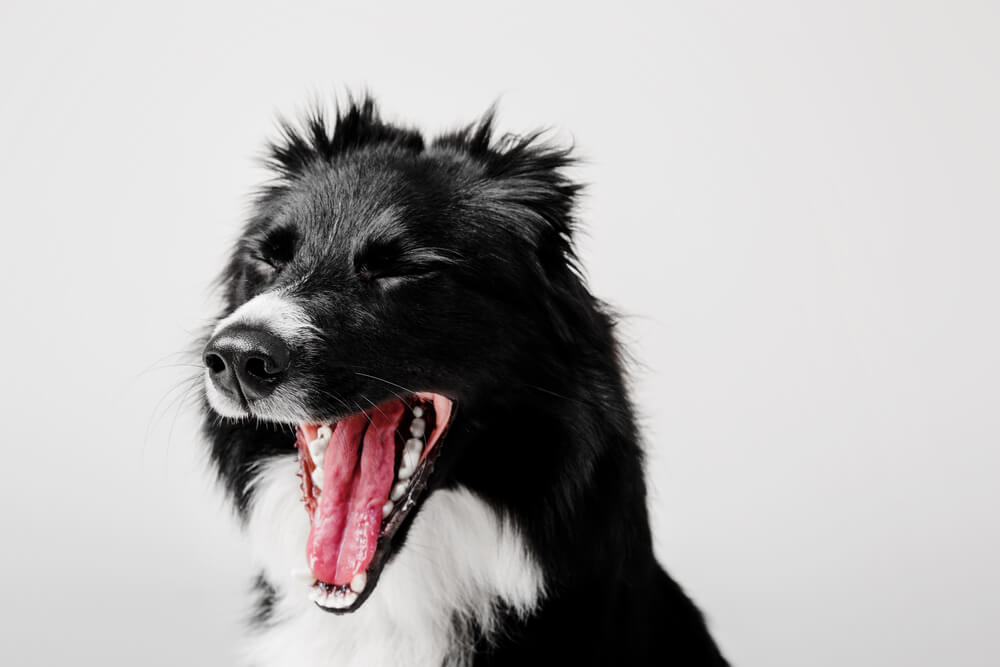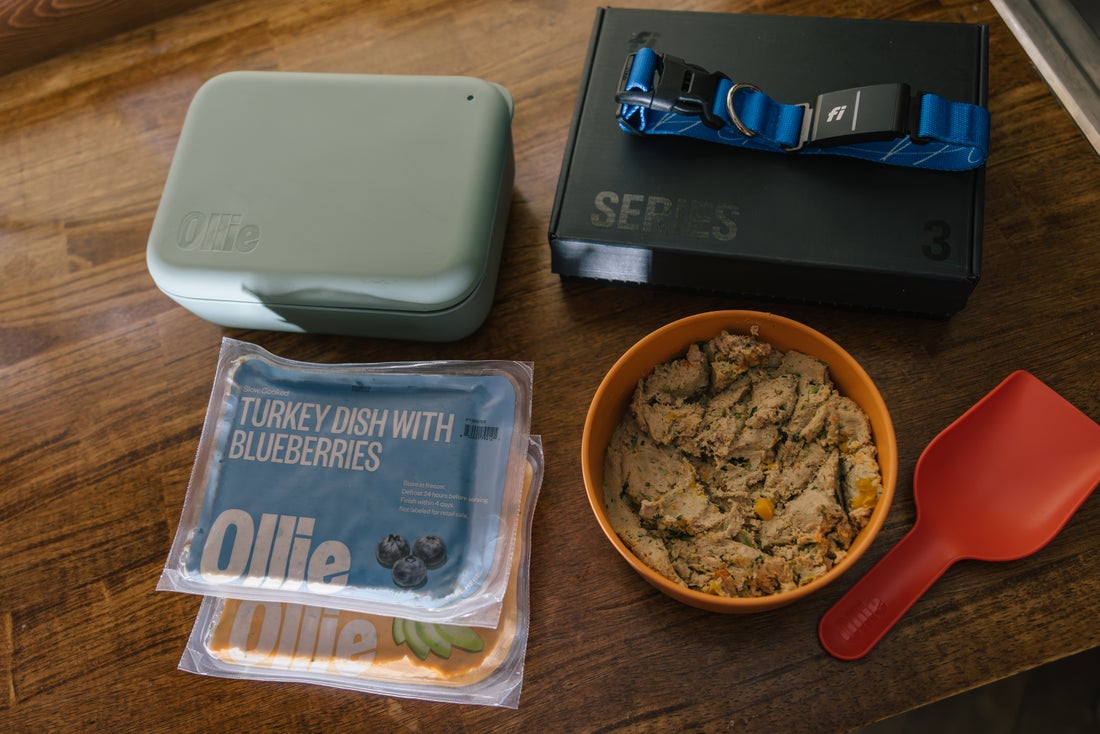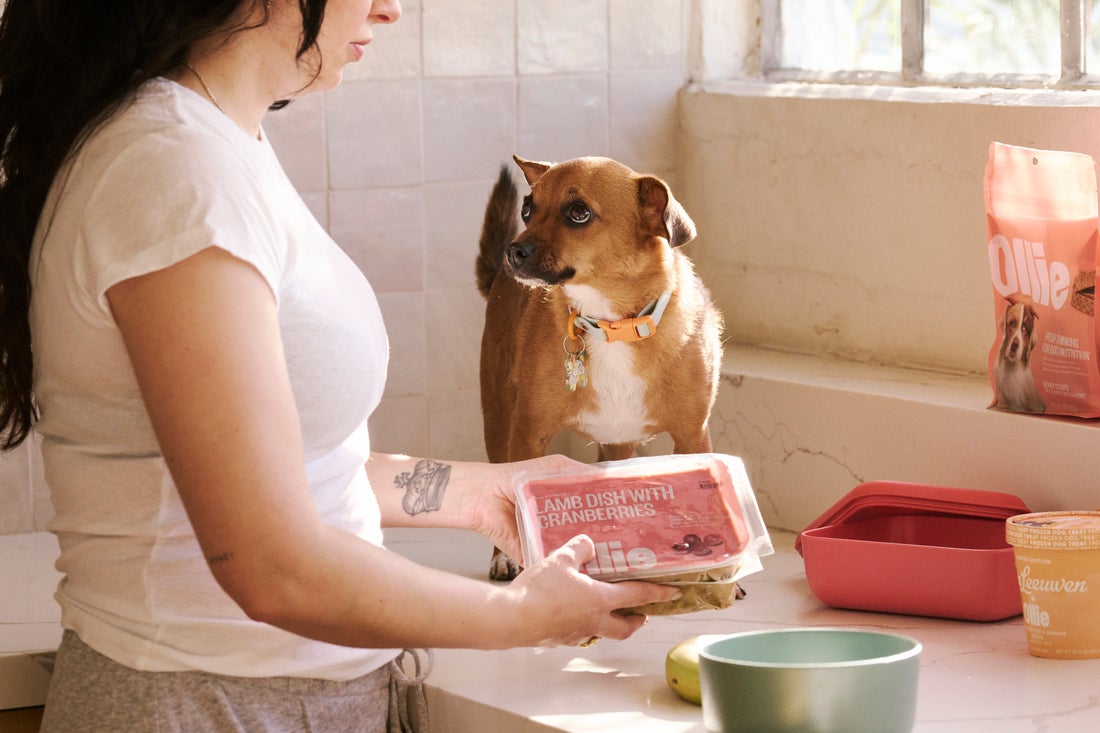Hey Ollie blog readers! We’re offering you an exclusive 60% OFF your starter box! Try now!
If you’ve ever been awakened by hot, smelly dog breath in your face, you aren’t alone. But, maybe you have wondered if your dog’s bad breath could be the sign of something serious. We’ve broken down the main causes of bad breath, and how to treat or prevent it.
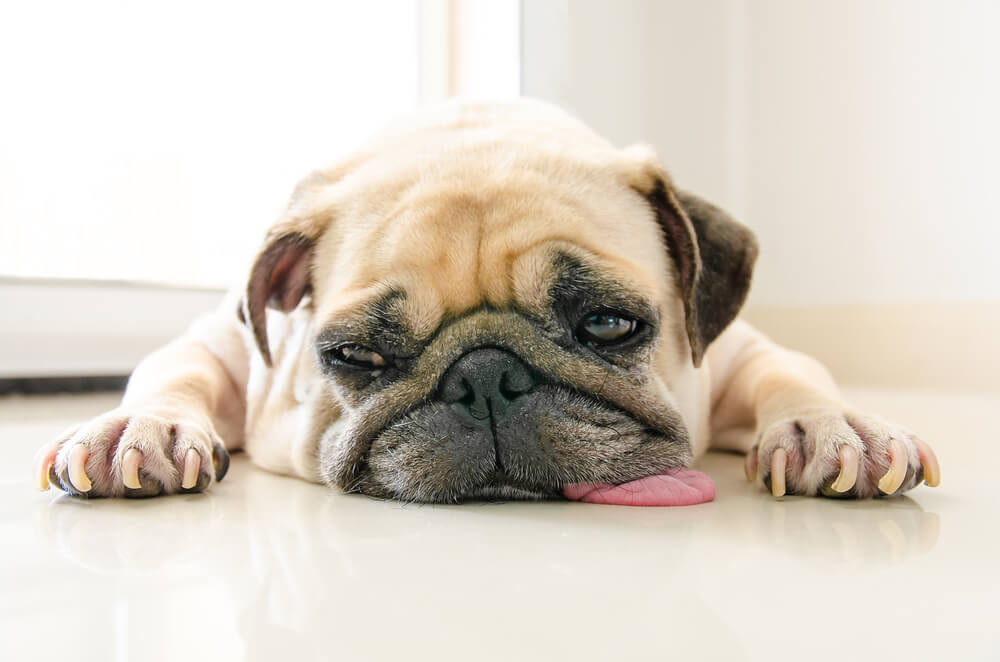
What are the main causes of bad breath in dogs?
Poor oral health
Just like you take care of your teeth, oral health is important for your dog too. If your dog has bad breath, the most common cause of this is poor oral health. This can include periodontal diseases and gingivitis.
If you let plaque and tartar build-up on your pup’s teeth you may also be looking at some very high vet bills too. Your pup may need a dental cleaning under anesthesia.
Bad breath can also be caused by broken, infected, or dead teeth. These usually need to be removed so as to not cause infection to spread or additional pain to your pet. If you notice in addition to bad breath your pup is not eating well or playing with toys a dental issue could be the cause.
Like humans, dogs can also suffer from periodontal disease. The Veterinary Oral Health Council defines periodontal disease as “an infection resulting from build-up of soft dental plaque on the surfaces of the teeth around the gums. The bacteria in dental plaque irritate the gum tissue if plaque is allowed to accumulate, which often leads to infection in the bone surrounding the teeth.” In this case, your vet will need to clean out the bacteria under your pet’s gums and may also need to give you some antibiotics to administer to ensure the infection does not come back.
Poor diet
A poor diet can contribute to bad breath too! If your pup isn’t eating enough, getting enough water, or isn’t eating a high-quality balanced diet you may notice some bad breath. Another way poor diet can contribute to bad breath is if your dog is eating things they are not supposed to. For example, if your pup is eating garbage or sneaking into the cat’s litterbox both of these activities can lead to stinky breath.
Other underlying medical conditions
If your pup’s oral health is earning you high praise from your vet, and your pup is eating healthy and nourishing food, you will probably want to get your pup checked out. There are several more serious medical conditions that can cause your pup to have bad breath. These include some cancers, diabetes, and liver or kidney diseases.
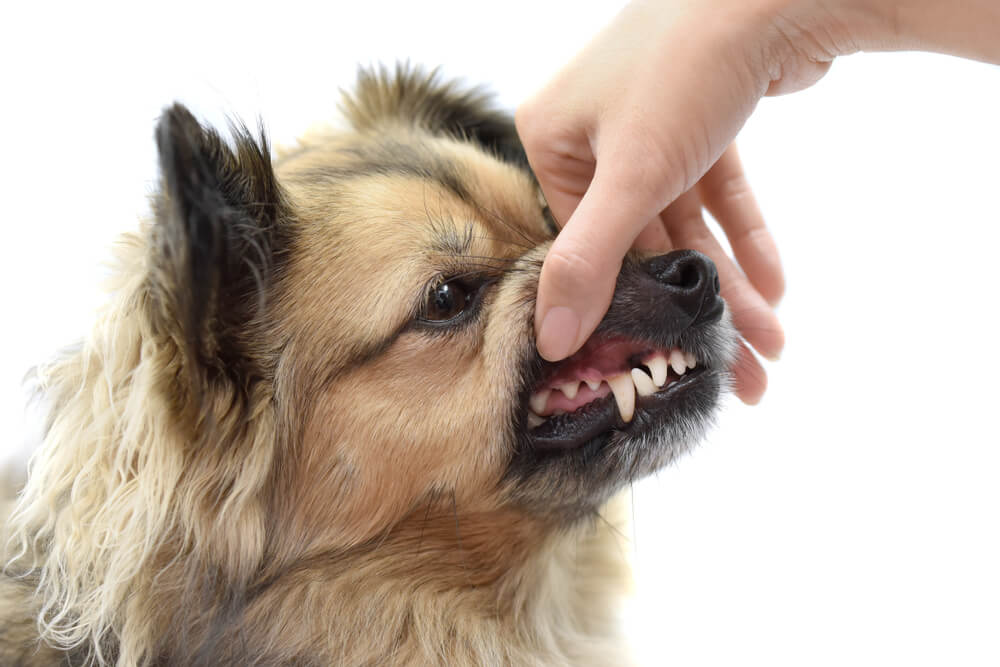
How do I treat my dog’s bad breath?
Professional dental cleaning
If you are noticing that your dog has bad breath, your vet may recommend a dental cleaning. Dental cleanings for dogs should take place while your dog is under general anesthesia. This is for a number of reasons for your pup’s safety. First, this way your vet can be thorough and clean any plaque under your pup’s gum line, not just the surface of their teeth. The instruments your vet will use are sharp, and if your pup were awake and moved during the procedure they could be injured. Additionally, your vet may need to perform other procedures like taking dental x-rays or removing teeth. For your pet’s comfort and safety this is best done when they are safely asleep.
There are some professionals including grooming practices that will advertise an anasthesia free dental cleaning for your pup. The American Veterinary Dental College advises against using these services. They remind pet owners that one of the American Animal Hospital Association’s standards is that dental care is performed under anasthesia.
Change in diet
If poor nutrition is one of the causes of your pup’s bad breath, your vet may recommend a diet change. Here at Ollie , we would agree. Along with our veterinary nutritionist we have created four delicious and nutritious Recipes to help your keep your pup feeling their best! We’ve created a quiz for dog owners just like you to help you customize the best meal plan for your pup’s needs. We consider your dog’s age, breed, weight and activity level when designing the best meal plan for them. Our four Recipes feature different proteins to keep your pup from getting bored too. You can choose from Chicken, Beef, Lamb, or Turkey – and mix and match to keep things interesting.
If your pup is eating things they shouldn’t like garbage, cat droppings, litter, or your favorite plants, you will want to make some changes there too. Keep the garbage well sealed, and move the cat box and your plants out of their reach. You also want to ensure you are supervising your pup closely as stinky breath may be the least of your problems – you could also be dealing with indigestion, vomiting, or diarrhea.
Improve oral health habits
Even if you weren’t brushing your dog’s teeth it is never too late to start. Ask your vet to show you how and start slowly. You can show your dog the toothbrush or place a small amount of toothpaste on your finger and place it on their tooth gently first. Work up to being able to brush daily.
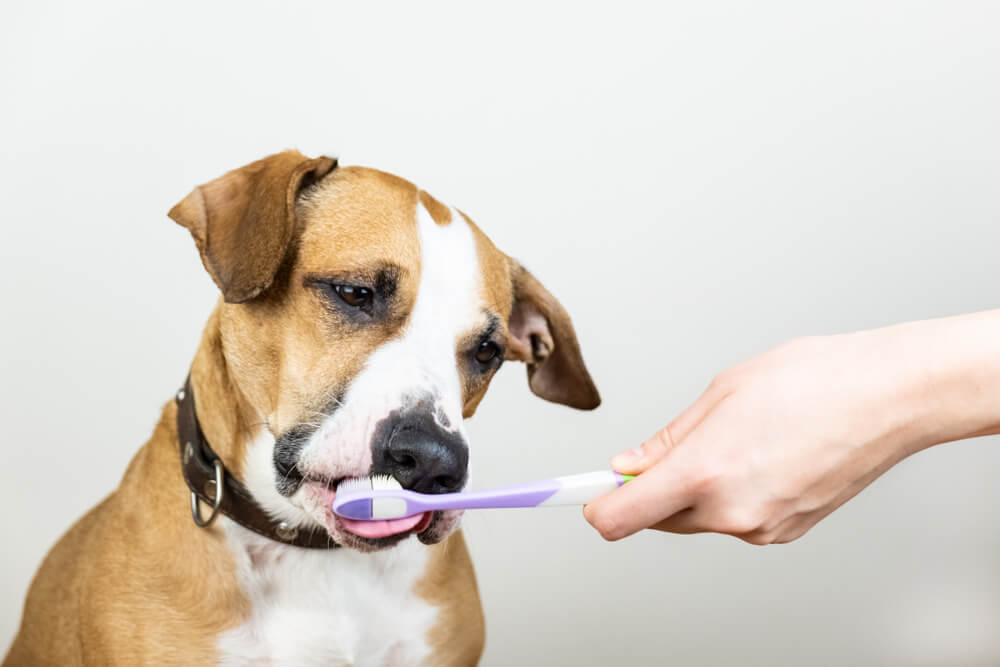
How do I keep my Dog’s breath fresh?
Brush your pup’s teeth regularly
We’ve already mentioned this but it is really the most important factor. Keeping your dog’s breath fresh (and teeth clean) starts with the simple act of brushing their teeth regularly. You should use an enzymatic toothpaste formulated for your dog as well as a dog toothbrush. Enzymatic toothpastes contain enzymes that reduce bacteria and improve your dog’s breath These toothpastes come in flavors ranging from sweet-smelling Vanilla-Mint to slightly stinkier and more pup-friendly Poultry flavored. Never use human toothpaste on your pet. The harsh detergents are not good for their teeth and some human toothpastes contain artificial sweeteners that can be toxic to dogs. Remember that unlike humans, dogs do not spit out their toothpaste.
Keep up with wellness visits at the vet
Another way to help keep your pet’s breath fresh and their oral health under control is to make sure you are keeping up with wellness visits for your pet. This way vet can help your spot small problems before they become bigger ones and provide appropriate treatments. Dogs between 1 and 7 years old should see their vet annually for a wellness check and appropriate vaccines. Dogs over the age of 7 may need to see the vet every 6 months or as recommended by your veterinarian.
Allow your dog dental chews or toys that help keep teeth clean
If brushing is not a smashing success, you can also see if your dog will enjoy dental chews. Greenies are the most popular and well known on the market but there are plenty of others. Check-in with your vet for a suggestion for your pup.
The bottom line here is that it isn’t just about making sure your pup has fresh breath, it is also important to make sure to keep your pup healthy too!
The Ollie blog is devoted to helping pet parents lead healthier lives with their pups. If you want to learn more about our fresh, human-grade food, check out MyOllie.com.
Tagged As:

The nutrition your dog needs,
the food they want.

Enjoying our articles? Subscribe our Newsletters and get new articles directly to your inbox
You might also like
18 September 2025
4 MINS READ
Is Fresh Dog Food Easier to Digest?
Yes, fresh dog food is generally easier for dogs to digest than highly processed kibble. Because it’s made with whole ingredients, gently cooked, and free from unnecessary fillers, fresh food supp…
by Ollie Pets
18 September 2025
5 MINS READ
Can I Rotate Fresh Dog Food Flavors?
Yes, it’s safe to rotate fresh dog food flavors, and many dogs actually benefit from the variety. At Ollie, we offer multiple fresh recipes, like Beef, Chicken, Turkey, Lamb, and Pork so you can…
by Ollie Pets
18 September 2025
5 MINS READ
Is Fresh Dog Food Safe During Power Outages?
Fresh dog food is only safe during a power outage if it has stayed cold, specifically, below 40°F. Once the temperature rises above that point, bacteria can start to grow, and the food may no lon…
by Ollie Pets
